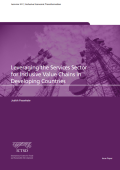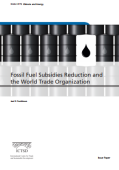
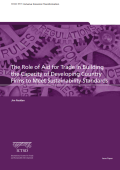
One of the major contemporary challenges facing developing country firms, and especially small and medium-sized enterprises (SMEs), is the ever increasing number of regulations and sustainability standards required of them if they are to integrate into global value chains. The paper "The Role of Aid for Trade in Building the Capacity of Developing Country Firms to Meet Sustainability Standards" focuses on the potential role that Aid for Trade—aid designed specifically to assist developing countries in overcoming supply-side issues and capture the gains of trade—can play in assisting those developing country SMEs and small producers who are struggling to comply with the sustainability standards required by value chains.
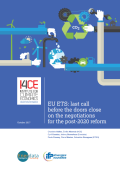
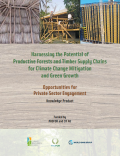
The report "Harnessing the Potential of Productive Forests and Timber Supply Chains for Climate Change Mitigation and Green Growth" evaluates opportunities for harnessing the potential for climate mitigation and green growth in the forest sector. The analysis focuses on mitigation benefits related to carbon storage in planted forests, harvested wood products (HWP), and the substitution of materials. This emphasis on the role of forestry in climate mitigation in developing countries fills an analytical gap—until now, the role of the productive forest sector has largely been ignored. In addition, the analysis quantifies the climate change adaptation benefits of investments in the HWP supply chain, such as creating economic opportunities and increasing resilience.
Under current conditions, the supply of HWP is unlikely to keep up with expected demand. Increasing economic and population growth in the study countries will drive greater consumption of HWP. Without making the recommendations suggested in this report, increasing consumption will result in large HWP supply gaps.
